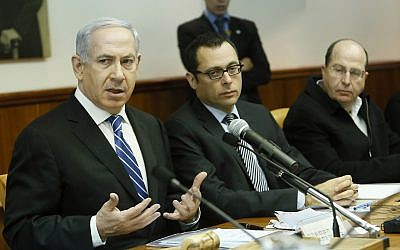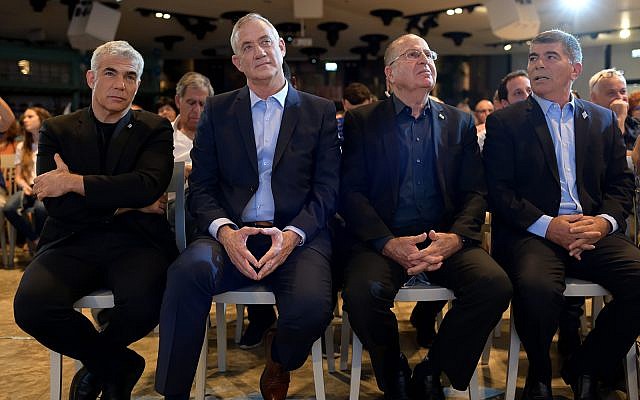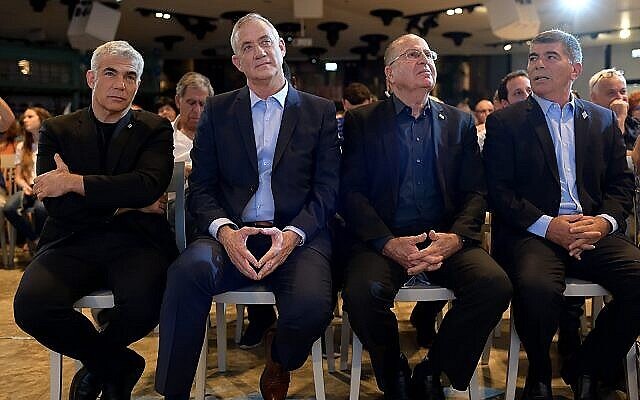Netanyahu Unseated by a New Generation of Leaders He Tried, and Failed, to Crush
Incoming coalition marks changing of the guard, pushing younger media-savvy politicians, many of whom were the premier’s apprentices, into power.
To most of the world, Prime Minister-designate Naftali Bennett is an unknown figure, a cipher. From Washington to London, Beijing to Moscow, every detail about him is being collected and scrutinized at this moment. Who is this 49-year-old right-wing nationalist, once Benjamin Netanyahu’s chief of staff, who is about to be inaugurated Israel’s next prime minister? One thing is certain — he lacks the mastery of the world stage enjoyed by his predecessor.
But there’s another thing the world should know: Profound changes are afoot in Israel.
The 36th government’s swearing-in signifies a changing of the guard. Though Netanyahu is likely to stick around, the new government will mark a major step in drawing to a close the era of a 71-year-old prime minister, born one year after the establishment of the state, while pushing Israel’s younger high-tech and media-savvy generation into power.
Bennett and Netanyahu are from an entirely different generation; the same goes for Bennett’s partner in the power-sharing government, Yair Lapid. Of all the 28 designated cabinet members, only one is near in age to Netanyahu: the next Diaspora affairs minister, Nachman Shai, 74.

Underlining the stark change is the youngest party leader of them all: Ra’am chair Mansour Abbas, born in 1974, is 25 years younger and a world apart from the outgoing prime minister. Abbas is poised to become the first Arab Israeli leader in half a century to steer his political party into a governing coalition.
New leaders, new media
The new political leaders have also blunted Netanyahu’s edge in a key area: His quick adoption of new media and ability to use these outlets to his advantage.
While Netanyahu has been perceived throughout the years as a wizard of tech and media, many of his successors built their public fortune in the news industry. Lapid, Labor’s Merav Michaeli, Meretz’s Nitzan Horowitz, and New Hope’s Gideon Sa’ar all worked as news professionals as columnist, reporter or anchor.

They are not shy to utilize their media know-how. They write long Facebook posts, talk easily to cameras. When Netanyahu adopted new social media platforms in a flash, they were right behind him.
Nevertheless, they kept up: Lapid utilized his writing skills and cool presentation style; Bennett performed Cuomo-style quick and sophisticated Zoom briefings and press conferences; Michaeli brought the camera into her living room with her famous weekly summaries and maintained a popular Instagram feed.

Even political neophyte Abbas rapidly became a communications wizard. He directed his press conferences to the nation at 8 p.m., taking a page out of the Netanyahu playbook to control the evening news headlines.
Two weeks ago, when coalition negotiations were taking place at a Ramat Gan hotel, Abbas was the only politician who made a point of cutting through the lobby as he entered and exited, letting journalists chase him to capture his comments live.
Having worked with Netanyahu, they had enough
Another common element worth dwelling on is that many of those about to unseat Netanyahu were his political apprentices.
Bennett was Netanyahu’s chief of staff, Yamina’s Ayelet Shaked was director of Netanyahu’s political office, and Avigdor Liberman was Likud’s director-general, a senior adviser to Netanyahu and a political partner when Likud and Yisrael Beytenu ran on a combined list in the 2013 elections. Blue and White head Benny Gantz was the IDF chief of staff under Netanyahu, Lapid was a senior minister in his 2013 government, and New Hope’s Sa’ar was Netanyahu’s cabinet secretary as well as a senior minister under him.

The lawmakers making up the foundations of Israel’s next coalition studied in Netanyahu’s academy, learning from the best.
This is the next generation of leaders. They reached this position thanks to him, but also despite him.
The new generation of leaders grew sick of living in the shadow of Netanyahu, a man who is apparently unable to give credit to others for successes. He failed to acknowledge others’ work and dedication, and was almost unable to delegate responsibilities or give anyone a free hand to act as they saw fit. And now, after many years, that centralization of power and egocentrism have played a key role in his removal from the stage.
When Blue and White was formed in 2019, Netanyahu used to deride the fact that the faction had four leaders — Gantz, Lapid, Moshe Ya’alon and Gabi Ashkenazi. “How many chairs together are required in order to replace one prime minister?” he quipped.

However by its nature the incoming government, comprising as it does eight very diverse leaders, many of them former Netanyahu’s protégés, rejects the notion that any one person is a key enough figure to occupy the helm alone.
To survive, the coalition requires all of its components pulling together to stay afloat. None of the constituent pieces can be jettisoned.
This is not yet the end of the Netanyahu era. But it may be the end of individual, non-collaborative, solitary leadership.









comments